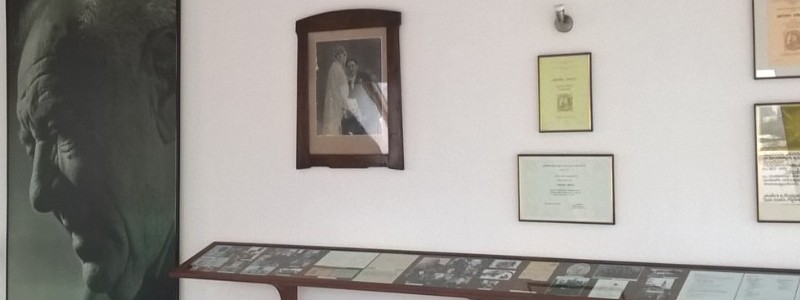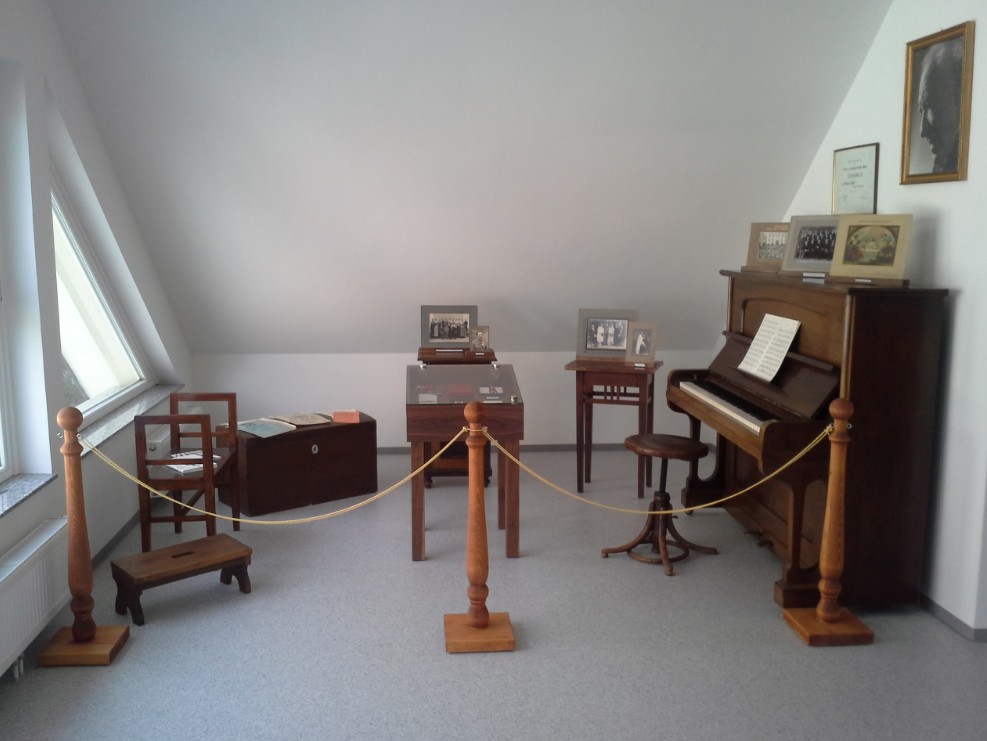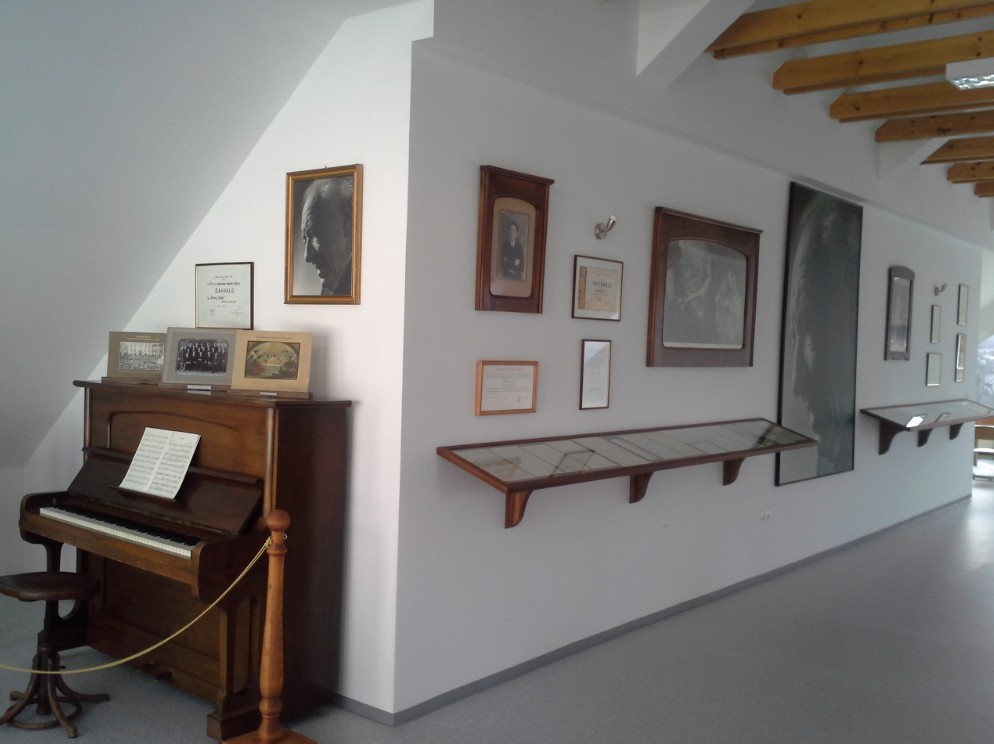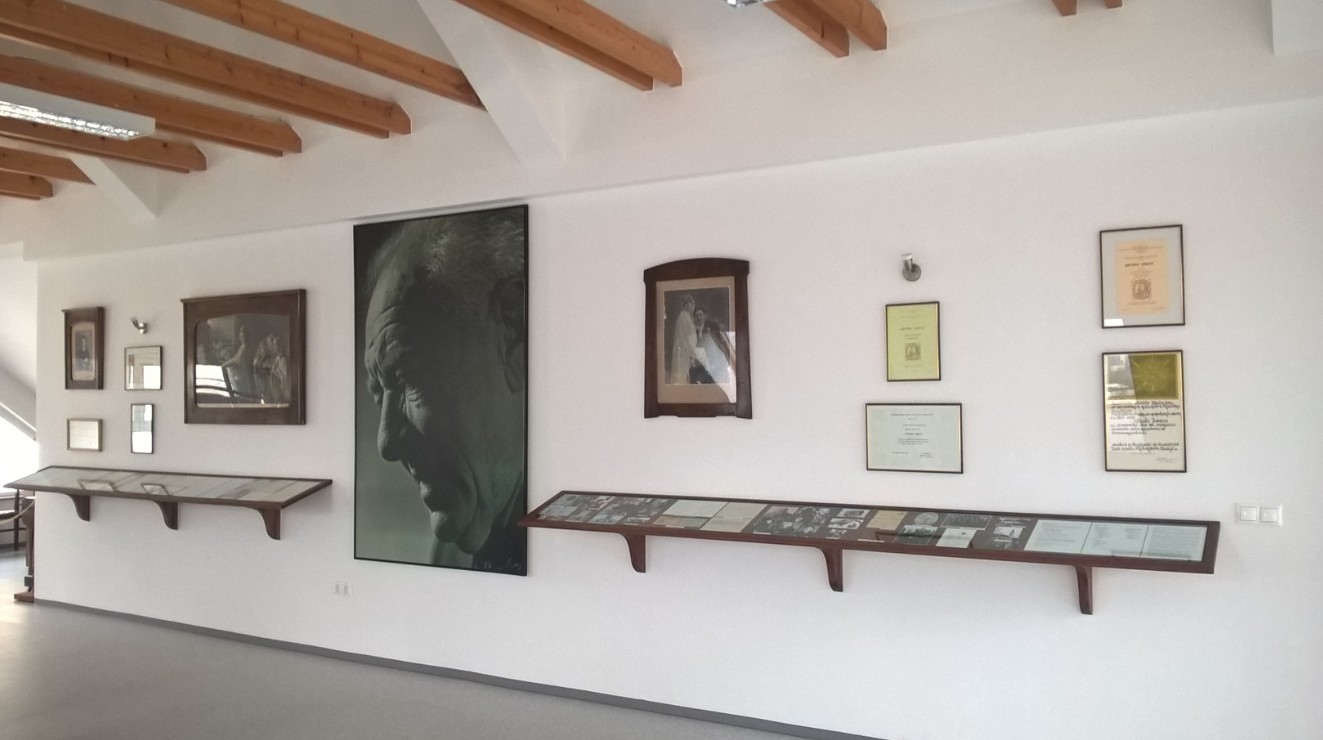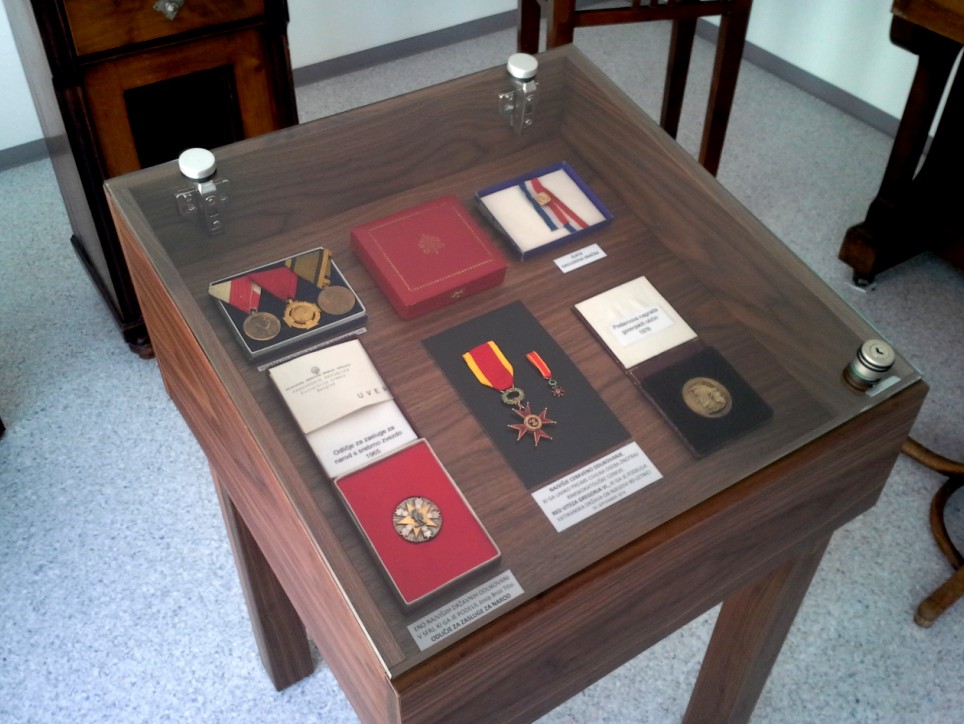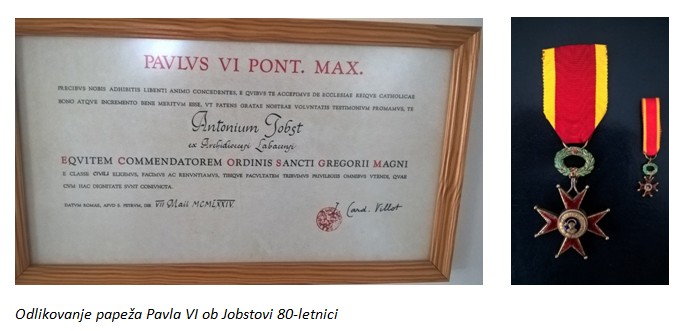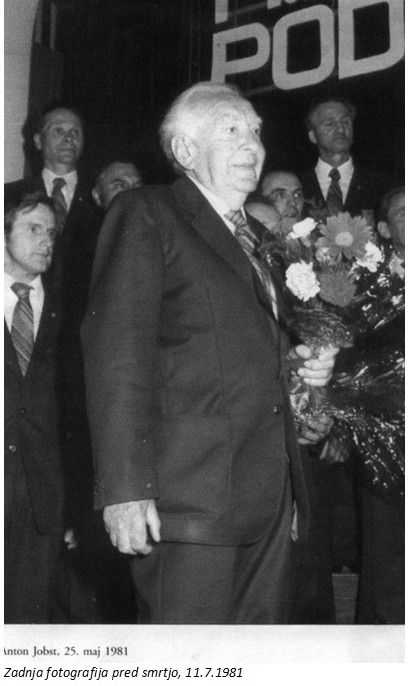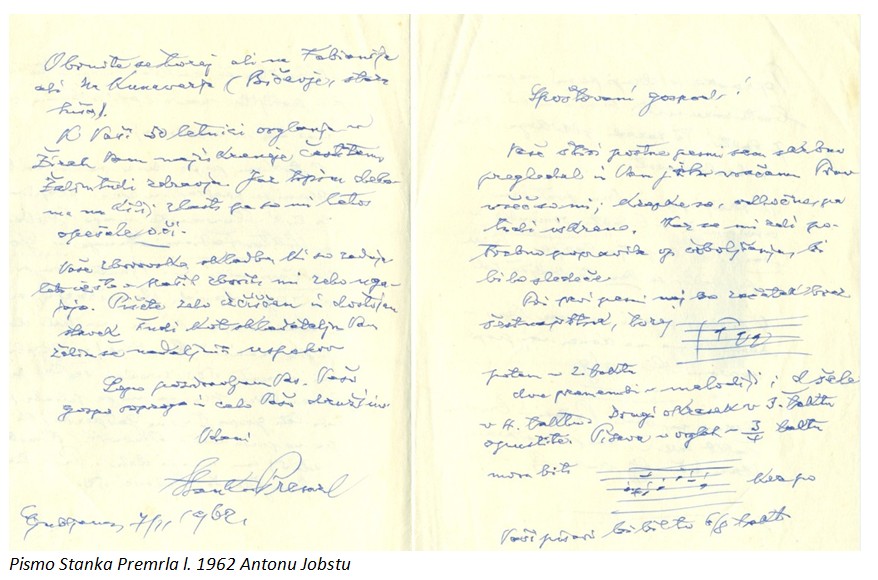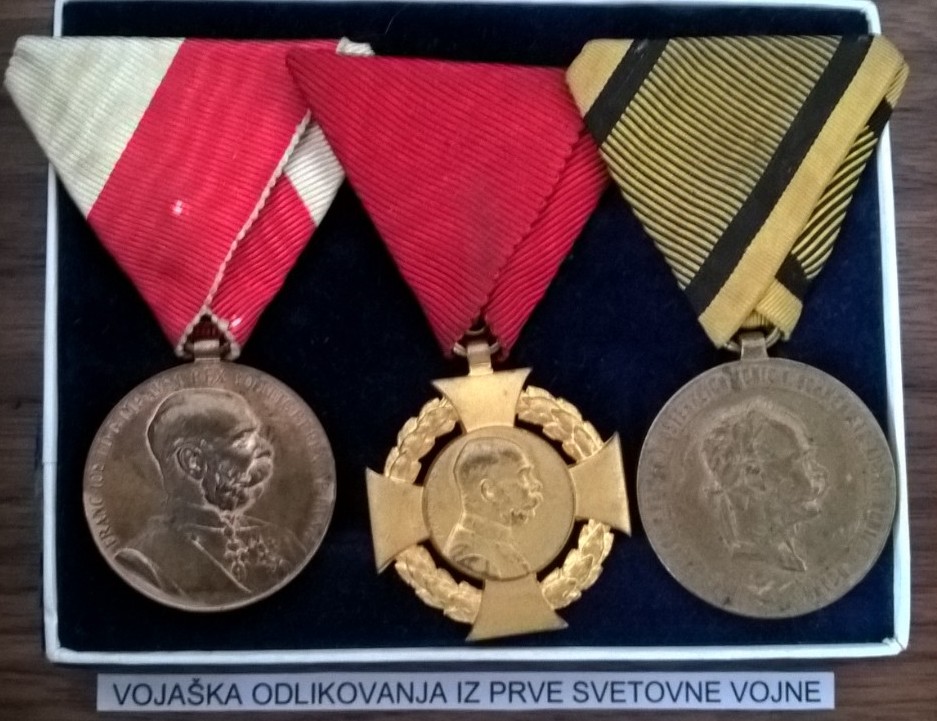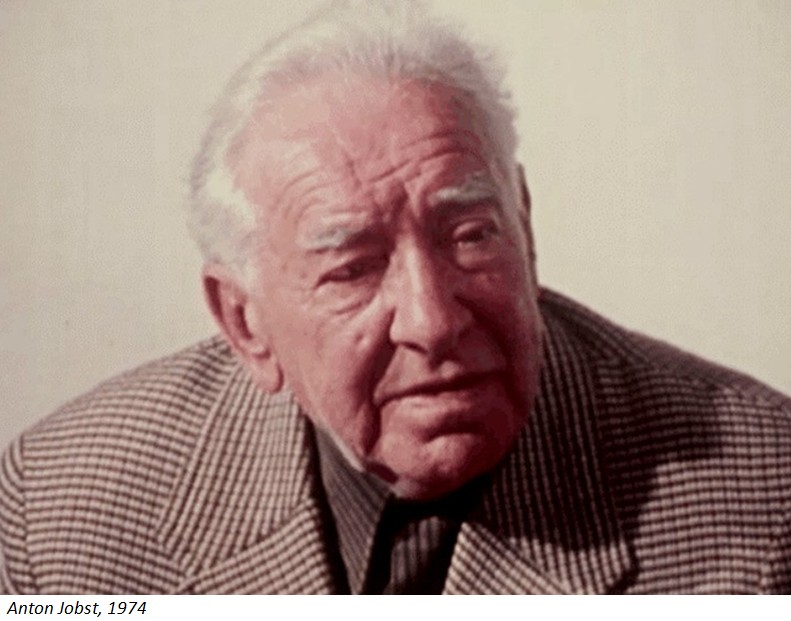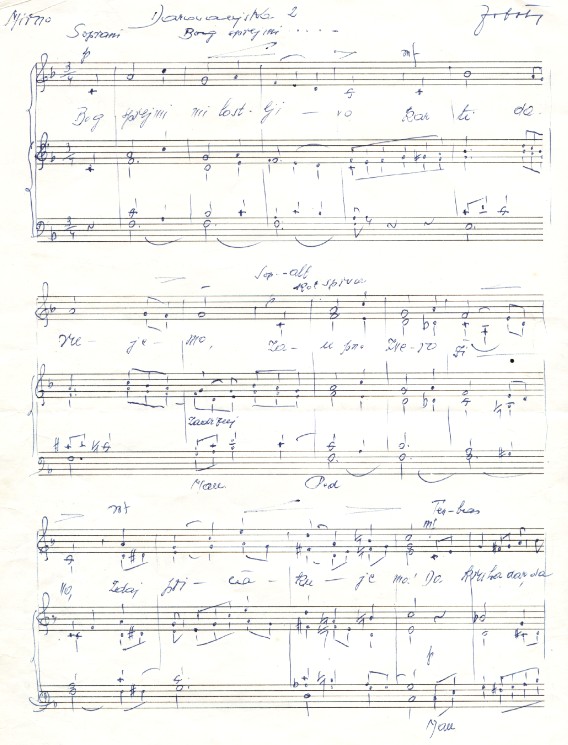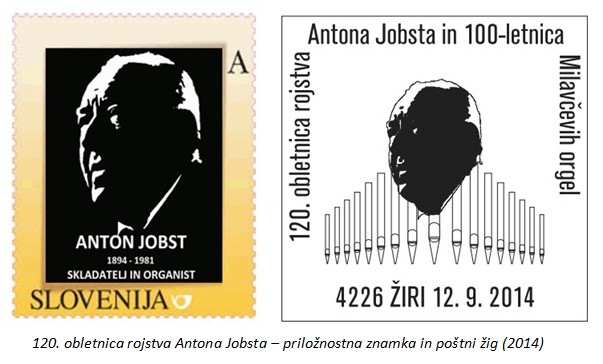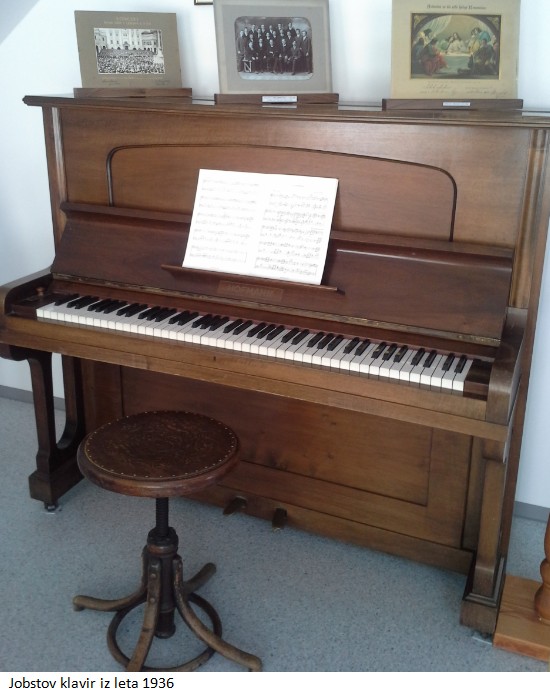A permanent exhibition dedicated to the organist, choirmaster and composer Anton Jobst was formally opened in the Jobst Hall in the rectory of Žiri, in 2015. Curated by Tone Čadež, the display features over 100 exhibits, including manuscripts, sheet music, awards and medals, as well as photographs documenting Jobst’s family life and musical career. Among the highlights of the display are the composer’s manuscript of the anthem of Žiri, Oj, mi smo pa tam na žirovskem doma (Our Beloved Home, Žiri), his first printed compositions from 1912, and a letter Jobst received from Stanko Premrl in 1962.
The memorial room houses Jobst’s upright piano dating from 1936, and displays the medal of the Order of St. Gregory the Great, bestowed to Jobst in 1974 by the Holy See in recognition of the services rendered to the Catholic Church through his achievements in sacred music. Most of his musical legacy is kept in the music score archives in the organ loft of the parish Church of St. Martin in Žiri.
Anton Jobst
While the prolific output of church music by the Slovenian organist and composer Anton Jobst (1894–1981) has elements of unique music inventiveness, his remarkable versatility is further reflected in his secular musical creativity.
The young Jobst received his first music lessons from his father Nikolaj, the village organist, and uncle Ivan Grafenauer, organist to the Church of St. Cross in the nearby Villach. At the age of sixteen, Jobst entered the Caecilian Society’s Organ School in Ljubljana, where he obtained his formal music education. On the initiative of his teacher, mentor and role model Stanko Premrl, a church composer, professor and principal of the Organ School, the graduate Jobst obtained a position as organist at Žiri, a town in the vicinity of Škofja Loka, and dedicated himself to composing and performing both secular and church music. Although being hindered during the First and Second World Wars, Jobst devoted his whole life to composing, to conducting the church choir, as well as salon and wind orchestras, teaching at a music school and performing on the organ and piano in Žiri.
He scored his first composition in 1912, a song for holy mass, Pred Bogom pokleknimo (Let Us Kneel before the Lord, Our Maker), which was published in Cerkveni glasbenik (Church Musician), one of the first publications specialising in music, launched in Slovenia in 1878. His next published work was the more extensive vocal/instrumental series of Pet postnih pesmi (Five Hymns for the Season of Lent) for mixed choir and organ. In the interwar period, Jobst stylistically enhanced the idiom of his sacred music by embracing contemporary tendencies – departing from traditional tonality and romantic topoi. The harmonic space thus extended is manifest in the musical inventiveness of the last movement, titled Tvoje čem trpljenje peti (I Shall Give Voice to Your Sorrow), of the above-mentioned series of Lent songs.
Another of Jobst’s characteristic departures from traditional composing methods was his use of rhythm. He first applied freer rhythm to an a cappella adaptation of a folk song, Kam pa, fantje, drev’ v vas pojdemo? (Whom Shall We Court Tonight, Lads), where the pronounced utilisation of tempo rubato erodes the sense of rhythmic stability, giving the piece a unique quality. Despite these tendencies towards compositional innovation, Jobst is generally considered to be a representative of traditional church music texture. After WWII, he scored several collections of organ music and, throughout the final years of his life, twenty organ preludes to church folk songs.
Although Jobst achieved prominence in Slovenia primarily with his sacred music, he produced more secular than religious pieces. He applied himself to theatre music with six operettas and demonstrated his composing versatility by scoring instrumental works that include pieces for solo instruments, chamber orchestras, accordion ensembles, wind bands and symphony orchestras. The bulk of his secular choral oeuvre is imbued with the composer’s emotional attachment to his native Koroška (Carinthia).
Maia Juvanc
